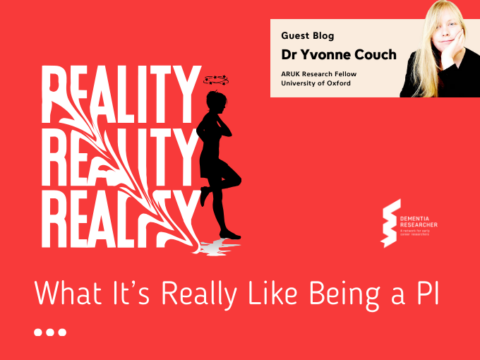Hello everyone and welcome to the second instalment of my monthly blog.
The topic of this month’s blog has come about following my first experience as a member of an ethics committee this month. During the second year of my PhD and following my attendance to an ethics committee, I submitted an application to the Health Research Authority to become a member of the panel for my local REC. Almost 6 years later and a few invitations to interview which didn’t work out timewise, after work one Tuesday, I sat down at my laptop to join as a member on the “other side”. During this session, I reflected on my experience as a early career researcher and thought what better to write about than this, so here we are…..
Although usually face-face, because of Covid-19, the ethics committee review, like many things, has moved into the virtual space. At 4:15 one Tuesday evening, myself and about 10 other members joined to review five studies that had been submitted in the past month. Each study had a lead and second reviewer, who looked at the study in-depth prior to the meeting and then presented to the group, posing any ethical concerns or queries that they had. This was then followed by an open discussion and an opportunity for others on the panel to contribute. Following this, and the part that many of you have experienced, the panel invited the researcher to join, clarifying and discussing the points that have been raised by the panel members. Once the researcher had left, the committee clarified the decision, and this is then passed over to an administrator to complete the relevant paperwork and inform the researcher of the decision. Easy!
Well easy for me, sat on the panel, not having my whole research project hanging in the balance, but I know what its like to be on the other side having submitted your research. As I said, during the meeting, I reflected on what it felt like to be an early career researcher, sitting on the other side of the panel having submitted my first study for ethical review. I remember being so nervous at the thought of others reviewing my research and so intimidated by the 10-12 people sat in front of me asking questions. I truly thought that the panel were somehow against me, looking to pick apart my research, not wanting me to succeed and finding any excuse to give me an unfavourable opinion! I remember not asking any questions, just answering nervously to their questions, too scared to have a discussion and just being willing to accept anything they suggested as a way to ensure my submission was approved.

Photo by Charles Deluvio on Unsplash
Having now sat on the “other side” and being a part of a panel, I realise how poorly I treated the whole experience and how wrong my judgement was with regards to the people on the committee. The ethics panel are a group of people with extensive experience and expertise, they are people who are there for their love of research (as they don’t get paid) and as such, they are people who in the most, want the studies to go ahead. Ethics panel members are only ensuring that the safety of the participants is at the forefront of research and if they do contest or questions areas of your research – it’s for a good reason. They are not there to test your knowledge or catch you out, but just discuss some of the decisions you have made in your research, mostly to clarify what have you have written but also just because they are generally interested in what you are planning to do.
Having reflected on both my experience as a researcher submitting an application and a committee member, here are a few tips that might help if you are just starting your research career and are about to take part in your first review:
- Discuss your concerns and worries with your supervisors, they will have a lot of experience in attending and supporting students through the review
- Speak to other early career researchers about their experience, ask them what amendments they had and see if there are ways you could adapt your research to prevent receiving the same feedback
- Put your participants first – the committee’s priority is the safety of the participants involved in the study – as long as you have their safety and wellbeing at the forefront, you will be onto a winner
- Think about the risks. Some studies do need to take risks and ethics committees are not oblivious to this. If you know what the risks are and are able to talk them through then the ethics committee are more likely to understand why you need to take them
- Grammar and language used does play a part – of course the committee focus mostly on the research itself but poor spelling and lack of consistency in language does affect how the reviewers view your application.
The most important thing to remember is that ethics committee members do not have claws and scaly feet, anything but! They are a group of (very nice!) people with a wealth of knowledge and expertise who are there to make your research safe and more often than not, better. Don’t be a scared early career researcher like I was, see it as an opportunity to gain a different perspective on your research, ask them questions about what they think is best, ask about how other studies have done something similar which has been successful and most of all, try and enjoy it – if you are considering a career in research, its something you’ll have to do a lot so let’s see it as a positive experience.
Oh, and for those who are still dreading the thought of going to a ethics review and have a spare evening, you are able to sit on a committee as a lay member and just observe how they run. The scariest thing is often the unknown so it may help calm those nerves!
Author
Dr Emily Oliver is a Consultant Admiral Nurse working for Dementia UK, visiting Fellow at the University of Southampton and Florence Nightingale Scholar. Emily recently completed her NIHR Clinical Academic Doctorate at the University of Southampton, in which the focus was relational care for people with dementia in acute hospital wards.

 Print This Post
Print This Post




